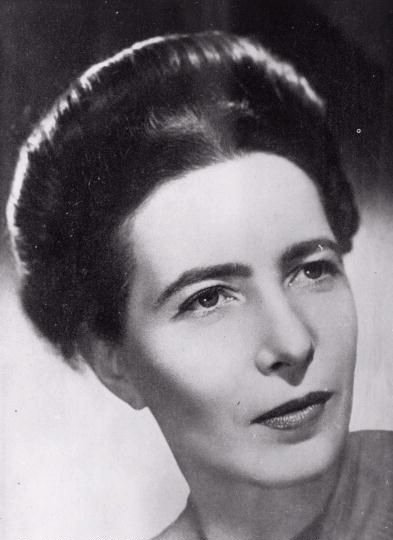 |
||||
|
Historical Feminism
Pioneering the Path to Equality: The Early History of FeminismThe early history of feminism encompasses the revolutionary movements and ideas that laid the groundwork for the fight for gender equality. Spanning several centuries, this article explores the origins, key figures, and significant milestones that shaped the early feminist movement and set the stage for the advancements in women's rights that continue to this day. The Enlightenment and the Emergence of Feminist Thought: The Enlightenment period of the 17th and 18th centuries marked a turning point in challenging traditional beliefs and advocating for individual rights. Intellectuals such as Mary Wollstonecraft and Olympe de Gouges questioned the prevailing notions of women's inferiority and began articulating the need for women's rights and gender equality. The Seneca Falls Convention and First-Wave Feminism: In 1848, the Seneca Falls Convention in the United States marked a significant milestone in the early feminist movement. Organized by women's rights advocates Elizabeth Cady Stanton and Lucretia Mott, the convention demanded women's suffrage and equal treatment under the law. The resulting Declaration of Sentiments laid the foundation for the first-wave feminist movement and sparked a renewed focus on women's rights. Suffrage and Women's Voting Rights: The fight for suffrage became a central pillar of the early feminist movement. Activists such as Susan B. Anthony, Emmeline Pankhurst, and Alice Paul tirelessly campaigned for women's right to vote. The suffrage movement gained momentum in the late 19th and early 20th centuries, leading to significant victories such as the suffrage movements in New Zealand (1893) and the United States (1920). Labor and Social Reform: Women's involvement in the labor and social reform movements of the 19th and early 20th centuries played a crucial role in advancing gender equality. Activists like Jane Addams, known for her work in social reform and establishing settlement houses, highlighted the intersectionality of gender, class, and race, and fought for improved working conditions and equal opportunities for women. Literature and Feminist Writings: Throughout history, feminist literature has played a pivotal role in challenging social norms and advocating for women's rights. The works of Mary Wollstonecraft, Virginia Woolf, and Simone de Beauvoir, among others, explored themes of women's autonomy, education, and the societal constraints imposed on women, fueling the intellectual discourse of the feminist movement. International Feminist Movements: The early feminist movement was not limited to one country but spread globally. Women from diverse backgrounds and cultures contributed to the cause, advocating for gender equality and women's rights in their respective regions. Organizations such as the Women's Social and Political Union (WSPU) in the United Kingdom, the Union of Russian Women, and the Indian National Congress's Women's Indian Association played pivotal roles in the fight for women's rights. Impact and Legacy: The early feminist movement laid the foundation for significant advancements in women's rights and gender equality. The fight for suffrage, improvements in reproductive rights, educational opportunities, and legal reforms were a direct result of the activism and perseverance of early feminists. Their efforts not only challenged societal norms but also paved the way for subsequent waves of feminism and ongoing struggles for gender equality. The early history of feminism represents a courageous and determined movement that set the stage for the ongoing fight for gender equality. From the Enlightenment thinkers challenging traditional beliefs to the suffragettes demanding women's right to vote, these early feminists paved the way for the advancements and achievements that have followed. Their tireless efforts in labor and social reform, their powerful literary works, and their unwavering advocacy have left a lasting impact on society. The early feminist movement emphasized the importance of women's autonomy, education, and legal rights, challenging the societal constraints that limited women's opportunities and roles. Their groundbreaking achievements, such as securing the right to vote and laying the groundwork for subsequent waves of feminism, continue to shape the feminist discourse and inspire activists worldwide. While progress has been made, it is essential to recognize that the fight for gender equality is an ongoing struggle. The early feminist movement serves as a reminder of the courage, resilience, and determination required to challenge entrenched systems of inequality. It also highlights the importance of intersectionality, as the early feminist movement often focused primarily on the concerns of white, middle-class women, neglecting the experiences of women of color and other marginalized groups. Today, feminism continues to evolve, with intersectionality at its core, recognizing the interconnections of gender, race, class, sexuality, and other dimensions of identity. The work of early feminists serves as a foundation for contemporary activists, providing inspiration and guidance in the ongoing pursuit of a more equitable and inclusive world. As we reflect on the early history of feminism, we must acknowledge the progress made, honor the trailblazers who fought for change, and renew our commitment to challenging gender inequality in all its forms. By continuing to build upon the achievements of the past, we can create a future that embraces the principles of equality, justice, and empowerment for all.
|
|
|||
|
|
||||
|
Historical Biographies
Groundbreaking Women
|
||||
 |
Health Matters - Historical Feminism - International Feminism - Lesbian Feminism - Male Feminism - Modern Feminism - Musical Feminism Philosophy of Feminism - Postfeminism - Pro-Choice Feminism - Quotes by Feminists - Religion and Feminism - Sports and Feminism |
 |
||
